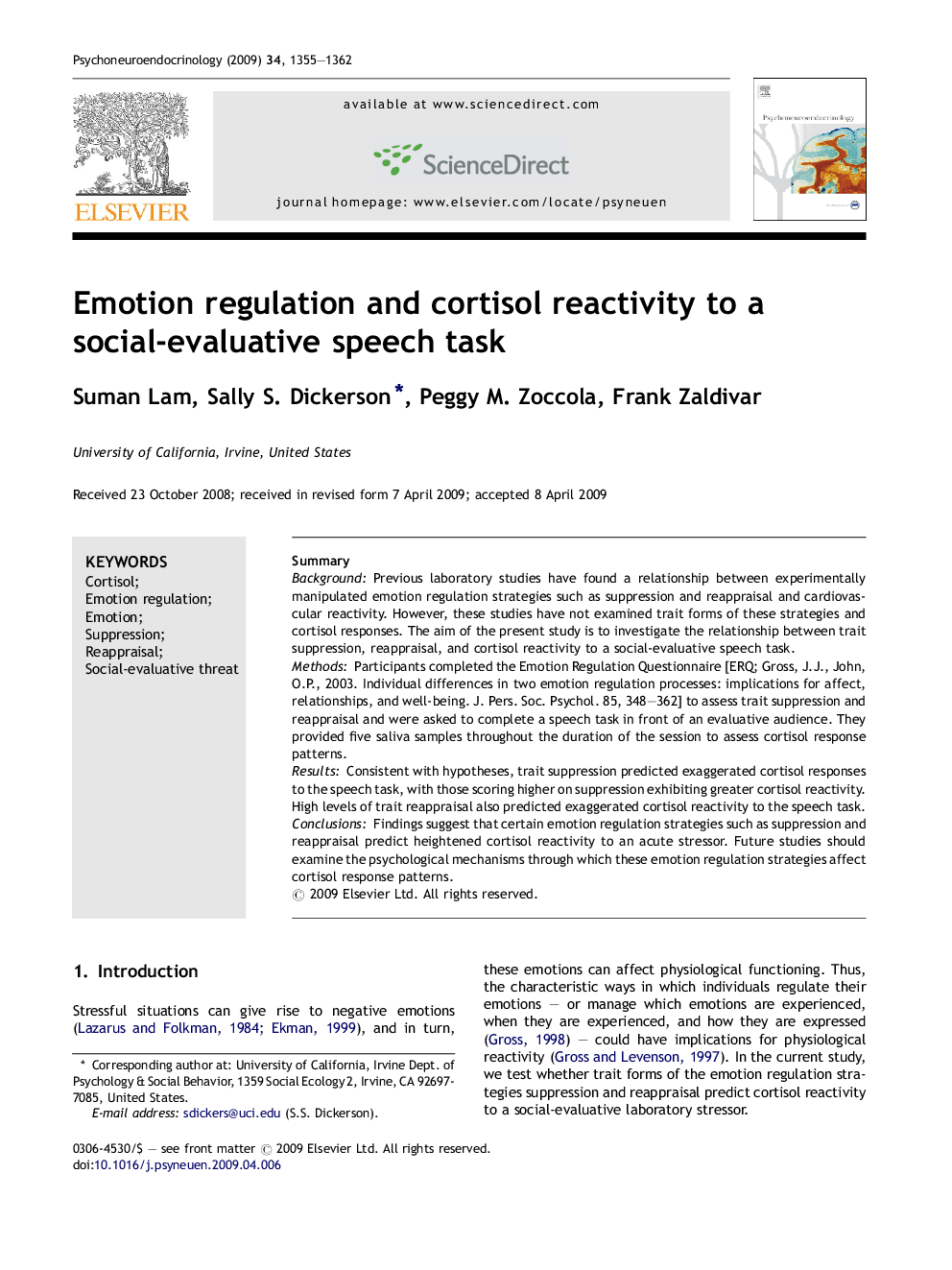| کد مقاله | کد نشریه | سال انتشار | مقاله انگلیسی | نسخه تمام متن |
|---|---|---|---|---|
| 336722 | 547194 | 2009 | 8 صفحه PDF | دانلود رایگان |

SummaryBackgroundPrevious laboratory studies have found a relationship between experimentally manipulated emotion regulation strategies such as suppression and reappraisal and cardiovascular reactivity. However, these studies have not examined trait forms of these strategies and cortisol responses. The aim of the present study is to investigate the relationship between trait suppression, reappraisal, and cortisol reactivity to a social-evaluative speech task.MethodsParticipants completed the Emotion Regulation Questionnaire [ERQ; Gross, J.J., John, O.P., 2003. Individual differences in two emotion regulation processes: implications for affect, relationships, and well-being. J. Pers. Soc. Psychol. 85, 348–362] to assess trait suppression and reappraisal and were asked to complete a speech task in front of an evaluative audience. They provided five saliva samples throughout the duration of the session to assess cortisol response patterns.ResultsConsistent with hypotheses, trait suppression predicted exaggerated cortisol responses to the speech task, with those scoring higher on suppression exhibiting greater cortisol reactivity. High levels of trait reappraisal also predicted exaggerated cortisol reactivity to the speech task.ConclusionsFindings suggest that certain emotion regulation strategies such as suppression and reappraisal predict heightened cortisol reactivity to an acute stressor. Future studies should examine the psychological mechanisms through which these emotion regulation strategies affect cortisol response patterns.
Journal: Psychoneuroendocrinology - Volume 34, Issue 9, October 2009, Pages 1355–1362